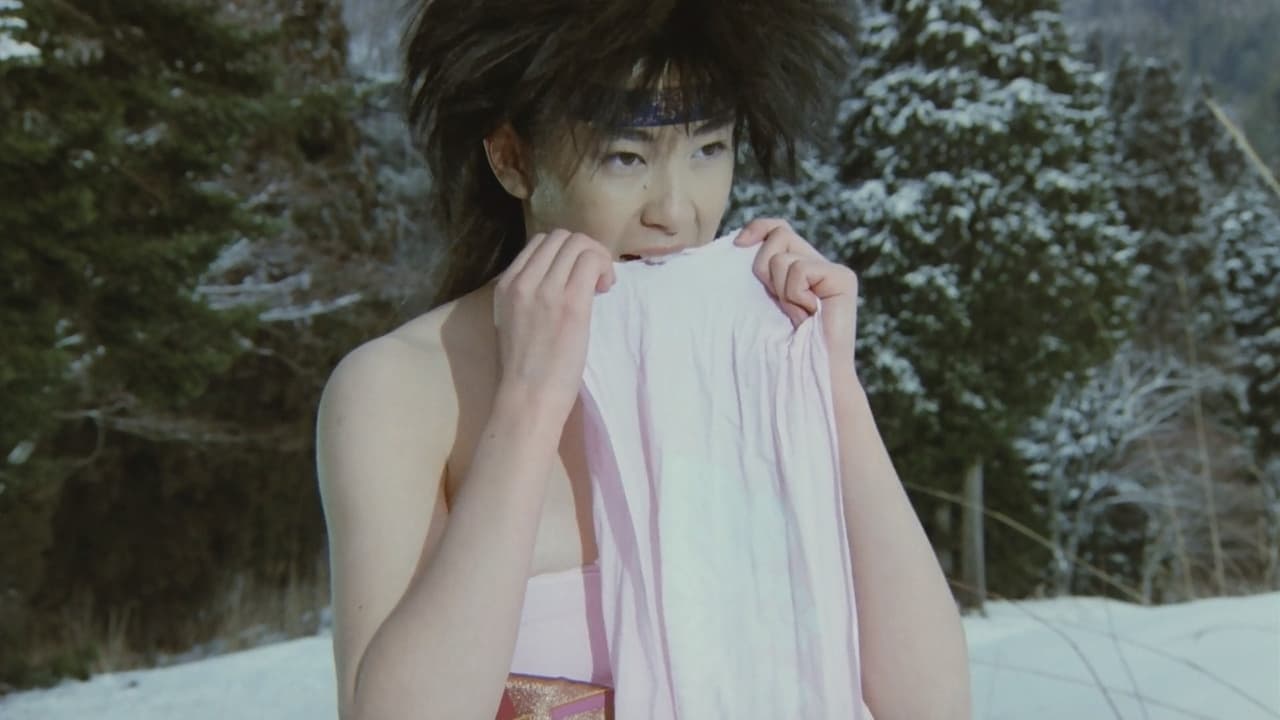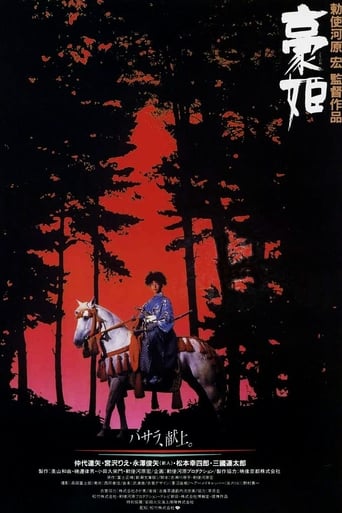

I'm going back to see every Teshigahara I can. I've loved him for a long time, but only recently revisited "Rikyu" (1989) and "Gô-hime" (1992), his last film. And, truth be told, I don't think cinema can get much better than this.I think it really helps if you love Japanese green tea, and if you're into preparing it yourself. There's a sense of fragile timelessness as one measures the correct volume of water in the right temperature, preheats the teapot and other utensils, and applies the right amount of tea leaves. There's a wonderful, relaxing effect in preparing gyokuro in a shiboridashi, or fukamushi in a kyusu, seeing the leaves unfold. Let alone preparing and drinking matcha out of a chawan.All of this, in my mind, is present in these two films. The sense of taking one's time, using only a few words instead of many, applying only little color instead of abundance. This is not easy to do, and I think Teshigahara's reputation as an avant-gardist does him wrong. He was, and through his cinema remains, a Rikyu of our time, not only in ikebana but also in cinema.Not that these two films are the same. This follows "Rikyu" immediately, but it takes some time to adjust to its more energetic and immediate characters, and the change in Toyotomi, since in this film he's played not by Yamazaki but by Oida Katsuhiro. It's the most difficult difference to adjust to, not because of any flaw in Oida but due to Yamazaki's sheer perfection. Oida's Katsuhiro ascends from the heights of a Lear to a perceivably less frightening a majesty. I can't help but miss Yamazaki every time Toyotomi's on screen, although he disappears form the movie very early on.But there's Nakadai Tatsuya, in his beauty unrivaled, save for the occasional Alain Delons of the world, and in his eloquence of characterization second to none in the realm of world cinema. Here he doesn't have that much to do which could be surmised from the title of the film. The rest of the players are the pillars that carry the princess's throne.
... View MoreUsually when I read reviews that recommend a movie on the strength of its visual qualities alone I become suspicious. But in the case of Go-hime and its predecessor 'Rikyu' the exquisite composition of many of the shots was sufficient in itself to sustain my interest. There are also some excellent exchanges between the characters to contemplate and so, all in all, I have to say that the director has surpassed himself. Kurosawa can infuriate as well as delight with his somewhat mannered and overbearing direction but somehow Teshigahara gets away with something similar here and in the process reveals himself to have the edge on his rather better known contemporary.
... View MoreIt is hard to fault this film. I can only assume that its low rating on the IMDb was in part caused by people who a) never saw Rikyu, and were thus unprepared for this film, or b) saw Rikyu, didn't like it, but for some reason saw this one too. 'Basarah - Princess Goh' continues both the plot and the style of Rikyu, a historical drama. The major characters this time are the princess of the title, who is the adopted daughter of Hideyoshi. She seems almost like two different characters, as the action in the film is separated by a jump of several years. The new tea-master, successor to Rikyu, is Oribe, who is a quite different personality, younger, and a little more flamboyant than his predecessor. Another major character is Usu, the gardener of Oribe. His centrality in much of the story, I think, is what tips this film away from the politics and intrigue of Rikyu towards a more character-based drama. There is the usual array of governors and petty warlords to flesh out the political intrigues underlying the story, though they hardly dominate the screen-time, even if essential for the plot.The photography is superb, and with some stunning outdoor scenes for contrast, it looks even better than Rikyu. The director Teshigahara spent his time between film-making and flower-arranging, of which he was also a master. His eye for detail, shot-framing, colour and movement are superb. I'm glad the plot moved forward relatively slowly, so I had time to take in the visuals. Everything on screen seemed to belong there, like brush-strokes on a masterpiece.Scenery and sets aside, the actors have been well-cast and convincingly present the story, which seems to repeat similar themes to those of 'Rikyu': political power versus artistic refinement, represented by the tea master and the intricate tea rituals, paraphernalia and etiquette. However, even these emphases seem less strong here than in Rikyu. The characters, accordingly, seem less like types, and more like real people. They do not 'represent' political power vs. artistic refinement so clearly as in Rikyu, and as mentioned above, the significance of Usu, the tea master's gardener, and his reciprocated feelings for the princess, add an additional element of love across class boundaries, though this is never made explicit (thankfully, since is a tired theme, much better left, as here, in the substrata).Overall, this is essential viewing for anyone that enjoyed 'Rikyu'. If you didn't like 'Rikyu', don't expect anything else from this film. If you can stand slow pace, and enjoy sumptuous visuals, I heartily recommend it, but if you haven't seen 'Rikyu', see it first.
... View More